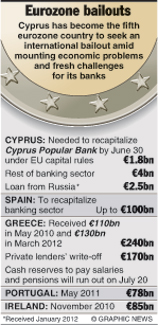Sunday Times 2
Contain-China policy and Sri Lanka
The Australian, a national new paper in Australia reported recently information relating to secret war plans of Australia and her allies to contain China. The report was based on leaked US cables published in WikiLeaks website. The Australian Foreign Minister in one if his interviews denied the existence of such a white paper. According to the Australian report, the US considers China as a threat. Hence, the objective of the contain-China policy was to plan for a blockade of China’s sea routes to control movement of imports and exports of China when the US and allies decide to act.
These developments in the Western camp have a direct relevance to Sri Lanka because of its geographical location and close relations with China. Sri Lankan ports will play a strategic role in facilitating China’s sea trade. Therefore, those who are drawing up the policy to contain China must be planning ways and means to cajole Sri Lanka.
Many a Western country depends on the dynamic expansion of the Chinese market for their growth. But, they also continue to harbour fears about China becoming the world’s biggest economy. The Liberal Premier of Western Australia whose exports to China reached $47 billion in 2011 explained this phenomenon clearly when he said, “Australia’s relationship with China is immature and the federal government lacks clear policy on how to deal with the country’s biggest trading partner in a climate where xenophobia remains.”
In short, the US and the Western camp have no choice but to be a part of the Chinese boom while also holding the banner of Chinese threat. In the final analysis, the West cannot accept that the centre of power is shifting elsewhere similar to what happened in the 20th century when Europe was overtaken by the US.
The “hawks” in the West are convinced that with the transfer of global power their ‘civilization and the values’ are at risk and the West should be ready to retaliate. The policy of containing China will be the final desperate strategy the hawks will employ before the inevitable rise of China to the top position in the international community. When one by one large multinational corporations fold up and countries have to put up with financial collapse, the West will be compelled to ignore the open market theories of demand and supply by opting to assist, bailout sick commercial ventures and sick countries unlike their IMF prescriptions to the developing and under-developed countries. The national economy and national security aspects are given recognition to prop up the West and the hawks busily proceed to explore soft power as well as tough diplomatic initiatives to manage geopolitics to their advantage.
Sri Lanka militarily defeated the LTTE by removing an organisation which could have been used by the West to destabilise the region including Sri Lanka. Many Western countries covertly assisted the LTTE in their attempt to weaken Sri Lanka, pushing it to seek foreign intervention to negotiate peace with the LTTE. The notorious Ceasefire Agreement of 2002 and subsequent events have amply proved that foreign interference in any form even as a pretext of guaranteeing peace will finally weaken the centre. It also creates opportunities to the enemies within the community such as foreign-funded NGOs to dictate terms with a view to deconstructing Sri Lanka.
Sri Lanka was even considered as a case for R2P when foreign (Western) pressure was exerted by the Western diplomats through NGOs and foreign think tanks.
President Rajapaksa led the nation in defeating the plot and he is now being marked by the Western powers such as Britain, the US and the EU. Their thirst to get involved in the island’s affairs was visible when they were able to get the UN Human Rights Council to pass a resolution with the support of India against Sri Lanka. The human rights violations which took place in various foreign locations in the recent times and the UN resolution against Sri Lanka demonstrate that this type of decisions are not based on international norms but due to the geopolitical context of a given country. It is clear that the West is of the view that Sri Lanka must be controlled as it can create problems for its geopolitical strategy in the coming decade.
In short, they seek to destabilise Sri Lanka so that it will continue to depend on the West’s financial assistance. This is their trap. The Sri Lankan people are pushed to gain their place in the consumer society driven by hidden persuaders. The upper middle class is setting the pace for the country to depend on the international market for its survival. The foundations of the national economy are ignored for short term expectations. Finally, Sri Lanka will be a ripe mango to fall into the lap of the foreign powers when the country will have no choice but to accept the terms of the West.
comments powered by Disqus















